Israeli economy minister Nir Barkat defends the country’s new ground offensive in the Gaza strip and weighs in on the Trump administration’s nuclear negotiations with Iran, on ‘Kudlow.’
Israel’s economy took a significant blow after the October 7 Hamas attacks, but as 2025 begins, the country is showing impressive resilience. As Israel grapples with challenges on the international trade front, highlighted by the suspension of trade talks with the U.K., the private sector remains resilient.
Foreign investments, which plunged by 68% in the immediate aftermath of the assault, are now recovering, signaling renewed confidence in the market and a strong rebound in Israeli equities.
In the months following the attack, foreign investors, according to Globes, sharply pulled back, with securities outflows reaching ₪9 billion (approximately $2.4 billion) by the end of 2023. The Tel Aviv Stock Exchange (TASE) felt the impact, when TA-35 dropped nearly 8% in the first trading days, according to the Times of Israel. The shekel also hit its weakest point in over a decade, falling to ₪4.08 per US dollar as fears of prolonged instability gripped investors.
ISRAEL FIRES BACK AT UK OVER SUSPENDED TRADE TALKS, REJECTS ‘EXTERNAL PRESSURE’
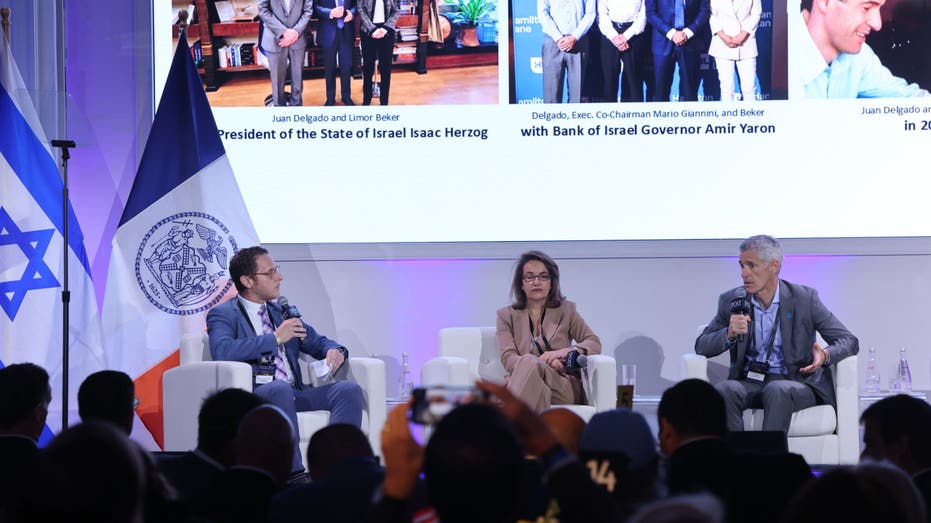
Host at the Jerusalem Post conference speaking with Limor Beker (Center) Managing Director at Hamilton Lane, Juan Delgado-Moreira (R) Co-CEO of Hamilton Lane (Photo credit: Marc Israel Sellem/JPOST)
However, the Bank of Israel intervened aggressively, selling $8 billion in foreign reserves, which helped stabilize the currency by November 2023. Israel’s market began showing signs of resilience by the start of 2024. By early 2025, foreign investment began trickling back.
Juan Delgado-Moreira, Co-CEO of Hamilton Lane, the world’s largest private market investor, said that despite the war-induced disruptions, “the fundamental growth of Israeli companies remained intact. Companies were able to adjust quickly, outsourcing and moving teams around, leveraging Israel’s strong connectivity with global capital markets.”
In an interview with FOX Business at the Jerusalem Post Conference in New York this week, Delgado-Moreira explained why his firm had chosen to double down on investments in Israel. Hamilton Lane has invested $1.25 billion in Israeli venture capital and private equity funds in the last 20 years, with nearly $250 million committed since October 7th. “The country is not a war zone,” Delgado-Moreira said. “I’ve been there through sirens, been to the south, and life goes on. It’s a place of opportunities, not a disaster zone.”
“Investing in private markets gives us control over timing, and when others are hesitant, we can step in with low prices and long-term returns,” he added, “as soon as all the flights reopen, my existing investment in Israel will go up 20 to 30% really, just because we have more capital coming.”
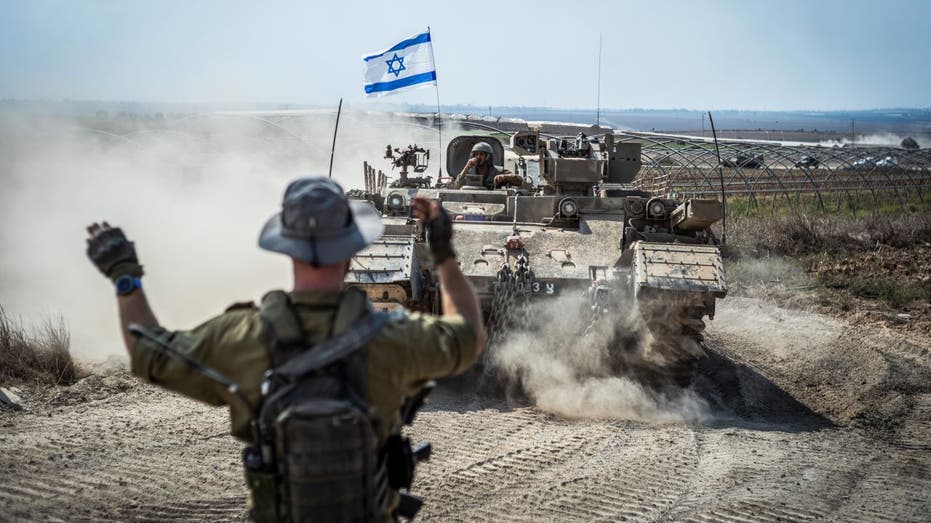
October 14, 2023, Israel, Sderot: Israeli military combat vehicles and tanks are seen near the Israeli-Gaza border as fighting between Israeli troops and Hamas terrorists continues. (Photo by Ilia Yefimovich/picture alliance via Getty Images / Getty Images)
Hamilton Lane, which regularly invests in private markets, has focused on key sectors such as AI, cybersecurity, and defense technologies, where Israel has long been a global leader. Delgado-Moreira told the conference that, “We believe Israel is the most attractive high-tech investment market in the world.”
Despite the uncertainties, Limor Beker, Managing Director at Hamilton Lane, explained how the firm capitalized on the downturn.
“In December 2023, we closed a very large secondary deal in the gaming sector that gave liquidity to investors. We were fast and creative, and it paid off,” she said.
GLOBAL MARKETS BRACE FOR IMPACT AS MIDDLE EAST TENSIONS RISE
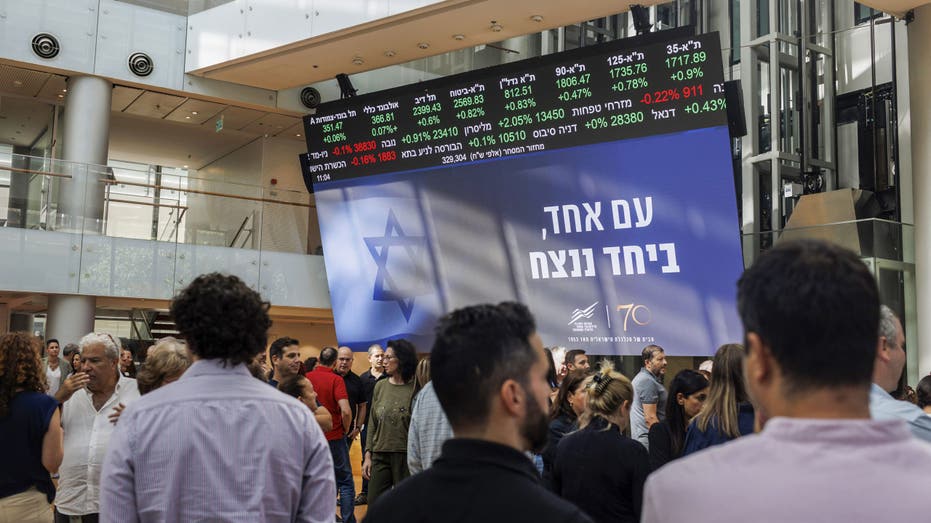
Workers participate in a memorial ceremony to mark a month since the Oct. 7 attack by Hamas terrorists, inside the Tel Aviv Stock Exchange in Tel Aviv, Israel, on Tuesday, Nov. 7, 2023. Israel’s shekel has recouped the bulk of its losses since the wa (Kobi Wolf/Bloomberg via Getty Images / Getty Images)
But Israeli businessmen are also thinking strategically about how investments can help strengthen Israel’s position in the global arena. One key example, presented at the Jerusalem Post Conference, is the Lobito Corridor project—a $1 billion development initiative led by Haim Taib, founder of Mitrelli Group, in partnership with Angola’s Sovereign Wealth Fund.
The project aims to transform Africa’s Lobito Corridor—stretching from Angola’s Port of Lobito through the Democratic Republic of Congo and into Zambia—into a critical trade route for minerals essential for global industries.
In an interview with FOX Business, Taib emphasized that the project is not just about economic growth, but about Israel playing a key role in connecting continents. “Israel’s role is crucial,” Taib said. “We can bring innovation, Africa has the resources, and America has the financial strength to develop these opportunities.”
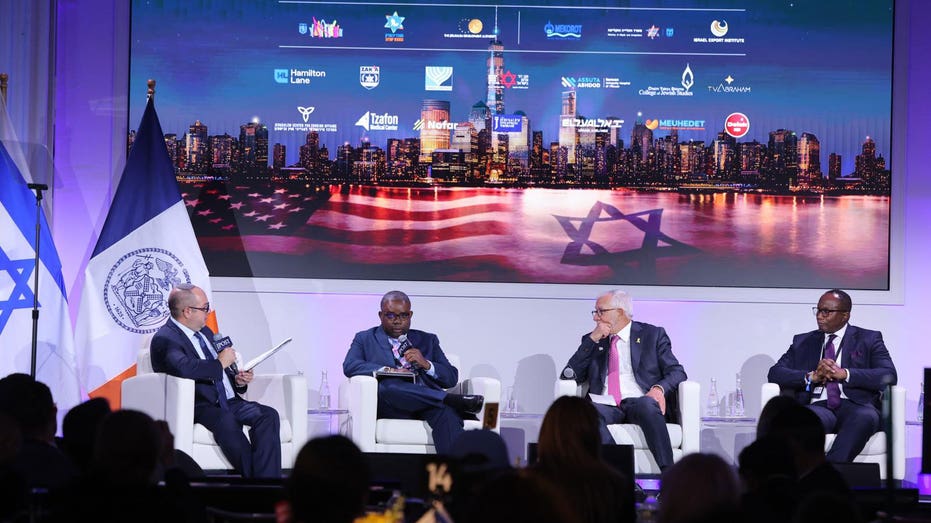
From left-to-right: Zvika Klein, editor-in-chief of the Jerusalem Post, Muyangwa Muyangwa, Director General of Zambia’s National Pension Scheme Authority (NAPSA) Haim Taib, founder of Mitrelli Group, in partnership with Angola’s Sovereign Wealth Fund (Photo credit: Marc Israel Sellem/JPOST)
Dr. Armando Manuel, Chairman of Angola’s Sovereign Wealth Fund, stressed the corridor’s critical role in reshaping global mineral supply chains. “China currently dominates the supply of critical minerals,” he noted. “But the Lobito Corridor will offer an alternative route for supplying minerals to America and Europe.” Manuel also praised the U.S. government’s support in helping shape the corridor’s future, positioning it as a key element in global trade.
Muyangwa Muyangwa, Director General of Zambia’s National Pension Scheme Authority (NAPSA), told FOX Business, “Everyone understands the donations and aids paradigm doesn’t work at all. That’s not what we’re looking for as Africans. Africa is a 1.2 billion-person market, and institutional investors are leading the charge to develop the continent’s infrastructure.”
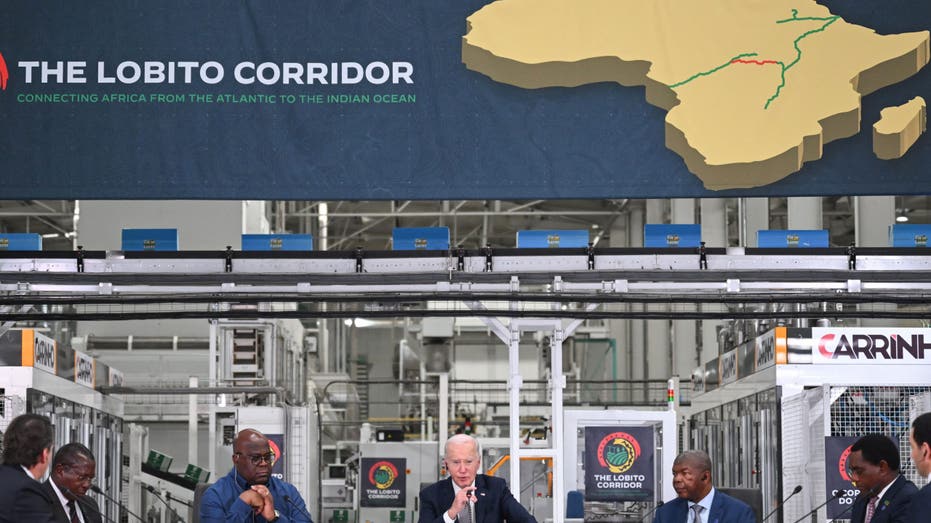
From 2nd L to R: Tanzania Vice-President Philip Isdor Mpango, Democratic Republic of Congo (DRC) President Felix Tshisekedi, U.S. President Joe Biden, Angola President Joao Lourenco, Zambian President Hakainde Hichilema attend the Lobito Corridor Tra (Getty Images)
CLICK HERE TO GET THE FOX NEWS APP
“I hope this initiative will lead to an expansion of the Abraham Accords. What we need now is to bring Saudi Arabia into the Abraham Accords, into the circle of peace in the Middle East. Then all the countries around the region will join. And then, all the Muslim countries in Africa will join as well. Then I see Israel linked between America, Africa, and the Middle East. So, I think Israel’s role is very, very important,” Taib concluded.







